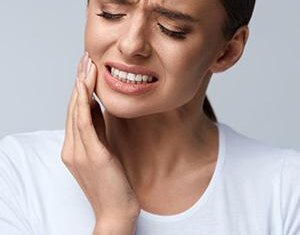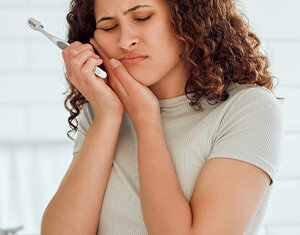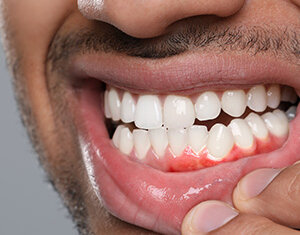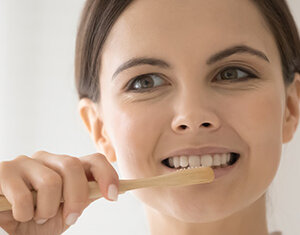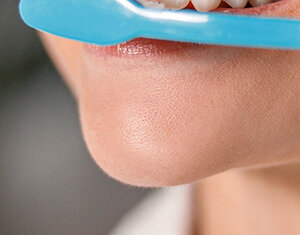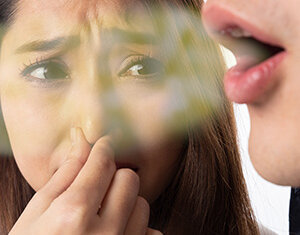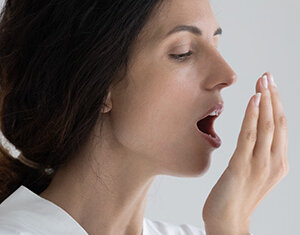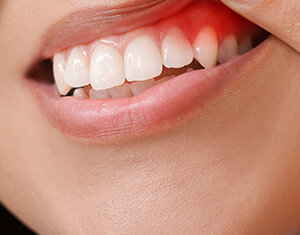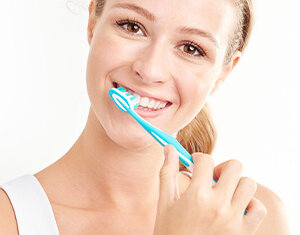Blog
Common Mistakes In Oral Hygiene And How To Avoid Them
Oral Care

Many people have good intentions when it comes to dental hygiene, but they often unknowingly do things that can harm their gums in the long run. This is often because they need an understanding of the purpose behind certain dental care principles or use flawed techniques. However, with a better understanding of proper dental hygiene practices, it's possible to avoid common mistakes and maintain good oral health. To learn more about these mistakes and how to improve your dental hygiene routine, read on to the article below.
Understanding Oral Hygiene and Its Purpose
Oral hygiene encompasses practices like brushing, flossing, and rinsing to maintain cleanliness and prevent disease. Primarily, it aims to control plaque, a sticky bacterial film accumulating on teeth. If not removed through cleaning, plaque may harden into tartar or penetrate gums, leading to decay, infection, and inflammation. Effective care ensures dental wellness and overall health, as poor hygiene enables pathogens to enter the bloodstream that may worsen systemic issues.
The Significance Purpose of Mouth Care
Effective oral hygiene purpose requires an integrated care plan spanning brushing, flossing, tongue cleaning, and routine dental examinations. This complete approach tackles plaque throughout the mouth, reducing decay and infection risks while enabling early diagnosis and intervention for sustaining optimal health.
Common Mistakes and How to Avoid Them
-
Neglecting Regular Flossing
Many overlooks daily flossing, failing to realise it removes residue bridging teeth and rotting under the gumline areas beyond the reach of any toothbrush. Teeth cleaner floss consistently eliminating plaque before it hardens into tartar or penetrates soft tissue ensures optimal cleanliness between teeth while lowering gum inflammation and pocket risks. Forming an evening flossing habit before brushing makes it a seamless addition to existing routines while bolstering effectiveness.
-
Incorrect Brushing Techniques
Aggressive scrubbing corrupts protective enamel and damages tender gum tissue unnecessarily. Optimal brushing relies on gentle yet thorough motion coverage. Using soft bristles and limited pressure while precisely angling the tips towards gum lines clears plaque effectively without bruising. Two minutes of focused attention across all tooth surfaces morning and night sufficiently provides comprehensive care when paired with flossing.
-
Forgetting To Replace Toothbrushes
Neglecting timely toothbrush replacement every 3-4 months allows worn bristles to retain debris and reintroduce bacteria back into the mouth. While visible fraying clearly demarcates replacement needs, bacteria accumulation on any toothbrush increases exponentially after a few months.
-
Skipping Dental Visits
Regular dental check-ups and cleanings are essential for maintaining good oral health. Even with a diligent home care routine, there may be calculus deposits between teeth and along gum lines that only professional cleaning can remove.
Oral Hygiene Procedure: Step-by-Step Guide
Achieving polished smiles and optimal health through caring mouth hygiene relies on an easy-to-follow oral hygiene procedure scripting evidence-based rituals:
- Floss gently to dislodge scrap between teeth before it compacts and irritates gums. Curve the floss around each tooth to clear plaque clinging to surfaces that hide from brushing.
- Use soft bristles and Dabur Meswak with fluoride to fight plaque when brushing your teeth. Angle the bristles towards the gums to remove bacteria without damaging the enamel. Brush for two minutes twice daily for proper care.
- Tongue cleaning, whether by scraping or brushing, can help eliminate sulphur compounds that cause bad breath and balance the oral microbiome.
- Mechanical brushing is not enough to reach all areas of the mouth, which is why it's important to use an antibacterial mouthwash rinse. Ask your dentist for a recommendation that suits your needs.
FAQs
-
Why is it important to understand the purpose of oral hygiene?
Understanding the purpose of oral hygiene allows you to fully grasp the significance of mouth care for preventing tooth decay, gum disease, and other problems that can impact your overall health.
-
How does flossing help oral health?
Flossing is crucial because it removes harmful plaque and food debris that gets stuck between teeth and under the gums, which cannot be reached by brushing. This prevents buildup that causes inflammation, infection, and tooth decay.
-
How often should you replace your toothbrush?
Dentists recommend replacing your toothbrush every 3-4 months at a minimum because bristles wear out and cannot be cleaned effectively. Bacteria also accumulate rapidly, so regular replacement ensures you start fresh to optimise oral care.
-
Why are dental visits still important if you brush and floss regularly?
Even meticulous brushing and flossing at home can only partially substitute professional cleaning. Dental visits allow for calculus and stain removal beyond home capacities and the detection of developing issues early on when they are easiest and most affordable to treat.
-
What is the benefit of using mouthwash?
In addition to brushing and flossing, mouthwash can reach corners of the mouth that are easily missed, killing harmful bacteria that contribute to gum infection, tooth decay, and bad breath to deliver fuller oral care coverage.









